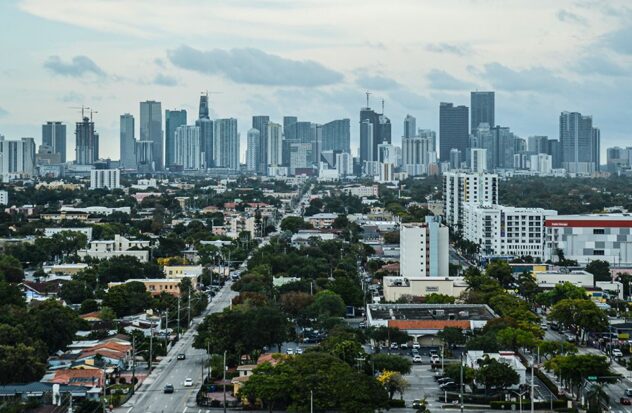HAVANA. – The scene takes place in La Víbora, a neighborhood south of the Cuban capital. In the middle of a blackout, Deborah, a former customs official, tries to calm a neighbor, fed up with the hardships of Cuban tropical ‘socialism’.
“They treat us worse than slaves. In addition to being miserable, they are perverse. They don’t even give us food. There are no disposable syringes in hospitals. Water has not entered the area for three days and, on top of that, there has been a blackout for four hours. If you protest they will put you in prison. Nothing works and the salary is a mockery. But the very sadists (those of the regime) also want us to applaud them,” says the very upset neighbor.
The lady, sitting in an armchair in the barred porch of her house, with a portable fan and two huge rechargeable LED lamps that her relatives sent her from Miami, tells him that “complaining doesn’t solve anything, it affects your health and things don’t work.” They are going to change. You must see the positive side. I read that they are going to install photovoltaic parks donated by China with a capacity of 1000 MW. You will see that by the end of the year we will gradually emerge from the economic crisis. When Cubans have food, parties and beer they no longer care about anything. Do you think that if the government could guarantee basic services and fill the warehouses, it would not do so? It’s the fault of the Yankees who don’t stop screwing us,” in a didactic tone, the former customs official tries to calm him down.
Several neighbors join the improvised debate: “Damn Deborah, that story is older than El Morro. Not even people with mental retardation believe it anymore. I blockade the people, but they live like tycoons. The rice of the month has not arrived at the warehouse, we are starving like hell and they (the party and state officials) are getting fatter and fatter. They don’t spend money buying fertilizers for agriculture, but they spend billions of dollars building hotels that are almost empty. People don’t just want to eat, drink beer and party. He also wants freedom and that it is not a crime to criticize the government. Why do you think Cubans emigrate?” asks a neighbor.
The controversy
Deborah feels cornered and decides to go to sleep. The controversy continues. Opinions range from restraint to offense. “This old woman is a shameless snitch. She defends this shit, but her family sends her packages of food, medicine and money every month. She even has an air conditioner that recharges with the sun for when there is a blackout and the refrigerator is full of meat. She probably has money saved from what she stole when she worked at customs, which everyone knows is a den of corruption. The day this falls, don’t be surprised if they drag her down the street and loot her house. “I’m going to do the first one,” says a neighbor with an extremist nature.
Another believes that “we cannot be the same as the rulers, who invented acts of repudiation to beat and humiliate opponents and those who emigrated. Whoever committed a crime, abused his position or caused harm to other people, justice will be in charge of prosecuting them. Otherwise we become Haiti, where the law of the strongest prevails. “A democracy is different.”
But the oven is not for cupcakes. The neighbors are still upset. “Bro, you are a tasty guy, but very naive. The one who overwhelms me, if they give me a chance, I will break him in two like a pencil. People are restrained because everyone is afraid of going to prison. When the government falls, Troy will burn here. “It will be an eye for an eye and a tooth for a tooth,” says the extremist neighbor.
Resentment
When you converse privately with simple people, you discover alarming opinions. Many hope to collect with violence what they consider to have been years of abuse and subjugation. In the neighborhoods of deep Havana is where the greatest resentment is seen.
“Asere, all my life I have had to put up with this group of singaos putting their foot down and abusing the people. If tomorrow I have a chance, I’m going to take justice into my own hands,” confesses a young man who makes his living as a street vendor.
Charly, a graduate in political science, understands the resentment and violence contained in certain sectors of society. “Castroism has been a government of order and command. Fidel was a strong man who administered the country as if it were his private estate. He controlled and interfered in everything. From livestock farming to preparing a baseball team in an international tournament. Raúl created GAESA, a kind of brotherhood with the same interests. Díaz-Canel is his satellite. “In the Cuban political model there is no space for open dialogue with the population and political opposition is illegal.”
In his opinion, the method they try to sell as reformism is an imposition under the veneer of pseudo-democracy. “Nothing has really changed. The political elite continues to dictate what should be done. And they are increasingly distant from the interests of the people. The current political model is indefinite. A real ajiaco. Bags of the worst crony capitalism with a communist ideology that never worked, but that serves as propaganda. But this indoctrination no longer penetrates broad sectors of the citizenry. The health system, education, the electrical energy system and the sugar harvest, among others, are on the verge of collapsing. The political and economic changes in Cuba should have been made fifteen or twenty years ago. Chávez’s petrodollars and the unusual ability to maintain power through control and intimidation have allowed them to survive,” the lawyer asserts.
Dollars, the goal
Although the olive green autocracy still maintains itself with the obsolete narrative of the ‘imperialist enemy’, a fundamental role in its strategy is to capture as many dollars as possible from the former ‘worms’. In the absence of a productive economy, the regime relies on the parasitic or leech economy. While Havana is the political capital, Miami is the economic branch.
The Castro regime will try to continue seducing Cuban-American businessmen living in Florida to sell second-hand cars that bring them more profits than the manufacturer or open Costco-style wholesale markets, where private entrepreneurs financed by their relatives in exile, or in the future by credits from US banks, can be resupplied.
Among the government’s current projections are eliminating absurd immigration obstacles for Cubans who have business as a priority and do not condemn the dictatorship. For those emigrants who ‘think like a country’ and favor their interests, in the short term new laws will be approved that will allow circular emigration and legal access to properties on the Island.
Those who oppose the Castro disaster will still not be able to travel to their homeland. And the opponents who reside in Cuba will receive an ultimatum: jail or exile. Every time the necessary dialogue is postponed, the perception increases among many ordinary Cubans that settling accounts is the solution.


